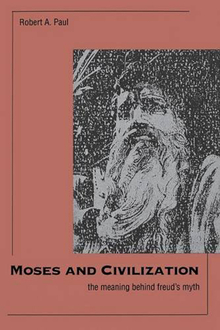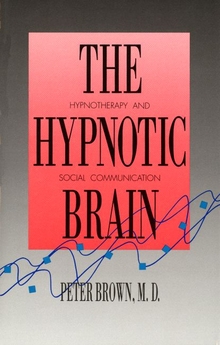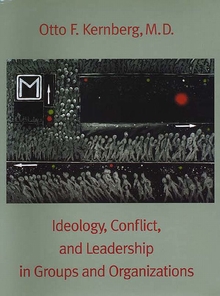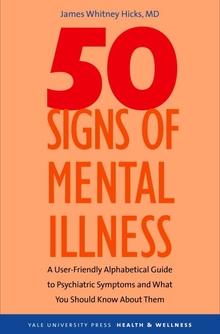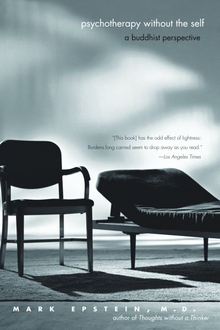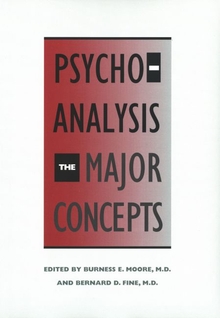Moses and Civilization
WARNING
You are viewing an older version of the Yalebooks website. Please visit out new website with more updated information and a better user experience: https://www.yalebooks.com
The Meaning Behind Freud`s Myth
Robert A. Paul
Synthesizing aspects of structural anthropology, symbolic anthropology, evolutionary theory, and psychoanalysis, Robert A. Paul reveals the numerous parallels between Freud's myth of the primal horde and the Torah text. He shows how the primal-horde scenario is the basis for the Christian myth of the life and death of Jesus. And he details the way Freud's myth corresponds to the unconscious fantasy structure of the obsessional personality—a style of personality dynamics Paul sees as essential to maintaining the bureaucratic institutions that make up Western civilization's most distinctive features. Paul thus corrects and completes Freud's project, creating a valid psychoanalytic account of Western civilization that rests not on faulty speculation, as Freud's did, but on a detailed reading of the biblical text and of the legends, folklore, commentaries, and social practices surrounding it.
A selection of the Jewish History Book Club
"This very important book is a fascinating psychoanalytic reading of the Torah that frequently illuminates texts that have been quite mysterious."—Daniel Boyarin, University of California, Berkeley
"In Moses and Civilization Robert Paul confronts a baffling intellectual puzzle which, in a tour de force, he tackles with the skill of a master puzzler. Although not everyone will agree with his proposed solution, no one, whether Freudian or anti-Freudian, will deny that it is achieved with rare insight and intelligence. It is a genuine intellectual treat."—Melford Spiro, University of California, San Diego
"Were the murders of the primal horde repeated in the saga of Moses, and did they lead to the birth of civilization and Judeo-Christian morality? Paul's hypothesis to this effect offers new understandings of the Bible, of Freud, of Western civilization, and of the primal horde as mythic paradigm rather than discredited reconstruction of ancient history."—M.D. E. Moore, m.d., co-editor with Bernard Fine of Psychoanalysis: The Major Concepts and Psychoanalytic Terms and Concepts.
"Paul . . . reveals the parallels between Freud's myth of the primal horde and the Torah text, drawing on structural anthropology, evolutionary theory, and psychoanalysis."—Reference & Research Book News
"[Paul]. . . has produced a highly speculative, continually absorbing psychoanalytic study of the career of Moses and his impact on Judaism and Western civilization."—Haim Chertok, The Jerusalem Post
"Paul writes much that is excellent and useful. He is always learned and often creative. By reading both the Bible and Freud sensitively, he helps each give new understanding to the other. The book is a real contribution."—Richard A. Friedman, Psychoanalytic Books
"Moses and Civilization is full of intelligence and wit, a captivating and illuminating grand tour of one of the foundation myths of our culture. It is certain to be a spring board for new theories and analyses in the continuing anthropological project to slough off Freud's errors and misunderstandings in order to build upon the enduring value of his work."—Allen Johnson, American Anthropologist
"Paul's tour de force, interweaving structural anthropology and psychoanalysis, Judaeo-Christian and cultural-civilizational studies generally, will surely evoke much discussion, perhaps even a little controversy. It would be surprising if work of this depth, quality, and originality failed to do so. The book is marked by clarity, sobriety, and modesty, traits of intellect and character that recall the model of Freud himself."—Samuel P. Jaffe, The Journal of Religion
"A fascinating and detailed exposition. . . . His . . . book has a large purpose, nothing less than a new understanding of Freud, the Bible and western civilization. . . . None can fail to be impressed by the intelligence that sparked off these imaginative fireworks."—Stephen Wilson, The Jewish Quarterly
"Robert A. Paul makes an ambitious and provocative new attempt to interpret the Torah narrative in the light of Freud's theory of the primal horde."—Roderick Stackelberg, The Historian
"Paul, a cultural anthropologist who has been educated as a psychoanalyst as well, has written an exciting reinterpretation of the Primal Horde Myth and has used the myth to help us understand the Bible and various religious practices. . . . Paul's scholarship in Judaic history, lore, and Talmud is profound; if at times we feel a bit awed by the twists and turns of his argument, we find that it is no more complex than Freud's use of dream mechanisms which he employed so skillfully to add to our enriched understanding of the tale of Prometheus, the Tree Caskets, and other myths. . . . It is a carefully reasoned exegesis of Biblical texts and religious practices that is supported by psychoanalytic logic and the logic of coherence of texts and of parallelisms that is ultimately cogent and convincing. . . . This is a first rate, psychoanalytically satisfying and personally rewarding book. It convinces us again that Freud's ideas can yield rich insight when applied to social forces in our culture, and makes clear that Paul is a masterful scholar and a creative thinker."—Theodore Shapiro, International Journal of Psycho-Analysis
Publication Date: October 8, 2013

